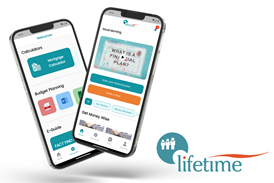To find out what D&I looks like on the ground, we asked Cara Cockayne, Colleague Experience Manager at B&Q, to share the three top lessons they have learned on their journey towards creating and implementing a robust D&I strategy.
Lesson one: gather the data
When we set up a Colleague Experience Team in October last year, we had very few foundations to work from. We wanted to understand more about our workforce, and make improvements where we could, so we commissioned a full cultural review, carried out by an external specialist in diversity, inclusion and culture.
They spoke to around 500 colleagues from every different level in the business, asking key questions in one-to-one chats and focus groups, which gave us a thorough overview of and insight into the culture of our business. Some of it resonated, and some of it hurt, but it allowed us to build our first-ever D&I strategy. Our next step is an even bigger data collection exercise to get a better picture of the diversity within B&Q, which we can use to inform our policies and check our progress.
Lesson two: prioritise education
We wanted to be clear about how we were going to achieve our goal of greater diversity and inclusion, so we created an ambitious ten-point plan of achievements for this year, with a focus on education. Steps include trialling reverse mentoring, running workshops in inclusive leadership, and the launch of a new e-learning module – which was completed by 20,000 people in its first month.
We want our people to feel comfortable having conversations around and asking questions about D&I, so we taught the basics of inclusion, such as the nine protected characteristics, and the different genders, and shared scenarios and examples that created some great conversations and debate. We then asked our leaders to look into the issues themselves, to learn more, and to be curious, with the aim of building cultural intelligence as a foundation for change.
Lesson three: create a sense of belonging
We’ve made some films of colleagues’ experiences, in which they share ways they’ve been discriminated against, to help bring the cultural review we commission to life. We’ve also just launched our colleague networks, which are open to everybody and allow people to share their experiences. This emphasis on listening has created some very special moments – people sharing with their peers and being really open has helped everyone to feel we’re all in this together.
We’ll also have catch-ups every six months to find out how everyone’s getting on, and to talk about what they’ve learned. It’s not about giving answers all the time, but about bringing people together to share. We’re trying to create an environment where everyone can be themselves and feel like they belong, and because our leaders really understand and are endorsing what we’re doing, we can get everyone else involved from there.














